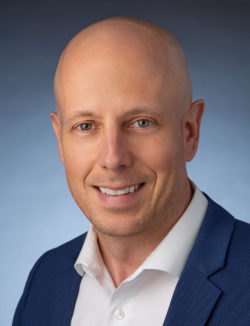Sponsored Content by Concentra
Bringing Care to the Employer’s Doorstep: How the Pandemic Changed the Game for Mobile and On-site Health Care

It’s a matter of record that the COVID-19 pandemic changed not only the way we work but also the way in which employers support their talent base. Maintaining the physical and mental health of our workers is more of a priority than ever before due to evolving market and cultural changes.
Mike Rhine, chief operating officer for Concentra® Onsites, said this renewed focus on employee health is creating a robust market for episodic health care support and mobile services to effectively meet the needs of employers and their employees.
The COVID-19 pandemic drove many companies to arrange on-site testing services and gave employers a taste of the benefits they could reap by having Concentra provide quality staff and vital services at their locations. As a result, employers are now looking to see what else they can do to increase savings and productivity gains — while also reinforcing their commitment to workforce health with their employees.
“I think a lot of larger employers that previously didn’t have experience with episodic services saw the true benefits for the first time during the pandemic,” Rhine said.
Rhine said that process might have started with a service provider coming in and providing symptom screening at the beginning of the pandemic. That then evolved into testing programs and providing vaccinations and continued with providing vaccination boosters.
While some companies attempted to internalize those services, Rhine said that they found it was more efficient to partner with a provider like Concentra. He is seeing evidence of a robust trend in that direction.
“We thought there would be some drop in this type of offering, but now employers are looking beyond COVID-19 and thinking about what other services can they bring into their facilities,” he said. “We have seen that they’re primarily looking for two types of onsite services.”
“There are episodic onsite services where you arrange for us [Concentra] to come and go as there is a need, maybe quarterly. There are also permanent onsite clinics. We’re seeing growth in both,” he added.
“In addition to the benefits I mentioned, folks have been spending so much time on COVID-19 that a lot of employers are behind on their compliance testing when it comes to the audiometric testing, surveillance, blood work, and other health services.”

Mike Rhine, Chief Operating Officer for Concentra® Onsites
“Due to the labor shortages many companies are experiencing, employers are now looking at what services they can bring into their facilities to save time and support productivity,” Rhine said.
With so many employees pressed for time and already under stress, any service offered at their place of employment that can save time — including time spent on the road to and from appointments — will be embraced and help drive employee engagement.
“It’s a productivity saver for employers to not have employees leaving their place of work for any type of testing or services they might need – outside, say, an injury where an employee needs to physically go see a physician and have an X-ray,” Rhine said.
Employers have been exploring everything from episodic care, such as quarterly surveillance exams and vaccinations, to full-service on-site clinics that provide occupational, urgent, and primary health care. On-site nurse and athletic trainer programs for injury prevention, triage, and first aid have also seen an increase. No matter what services and mode of service delivery an employer chooses, there is the added benefit of maintaining a culture of health and wellness.
“We’ve created a department focused on episodic and mobile services and we’ve added it to our onsite team assigned to permanent clinics for large employers. That gives us an entire team that spends their days – and sometimes evenings — thinking about how we’re going to solve our clients’ episodic needs,” Rhine added.
“That may mean bringing staffing agency personnel on site to handle a short-term need for our clients, or even engaging a mobile unit partner to go on site for a large hiring event or quarterly compliance testing,” he said.
Sectors that are utilizing health care support services include manufacturing, construction, and perhaps surprisingly, health care.
Health care institutions are experiencing high levels of employee burnout and resignations, Rhine said, and in turn need their own health care support.
“Some health care systems are so stressed that their employee health department can’t keep up, and they’re needing assistance,” Rhine said.
Rhine added that in construction, a drive-up health support service can provide crucial safety and health monitoring and support.
Companies of a Certain Size
Concentra can customize its on-site and episodic services for any company. The company closely collaborates with its clients to fully understand their workforce health needs and develop the most effective on-site health program.
For example, Concentra recommends episodic and mobile services for companies with a minimum of around 100 employees, Rhine said.
“When you’re at 100 employees or more, that’s usually when it makes sense, especially if you are involved in manufacturing.”
Rhine said an example of a good fit for episodic and mobile services would be an electric vehicle (EV) battery plant. Employees in those plants need to be monitored for possible exposures and to make sure their respirators are fitted properly.
A fully equipped and staffed on-site clinic might make more sense for employers with 500 or more employees, Rhine said.
Pre- and Post-Employment Testing
Yet another area where on-site and mobile health care support services are needed is in pre- and post-employment offer testing. Concentra can staff or utilize a mobile unit to support large hiring events to handle all pre-hire medical and fitness testing. This saves time for employee and employer by limiting the number of providers used and having to go into the community for these services.
Large organizations that need to rapidly onboard dozens of workers can partner with Concentra to do so safely.
“We now do hiring events where folks show up on a Saturday and we go through 200 plus physicals and take care of everything the employer needs to hire those folks that same day,” Rhine said.
On-site clinicians can support employers in their efforts to recruit and retain workers. An on-site athletic trainer can test a prospective employee’s physical capability to perform the job they’re applying for – saving a company time and money, not to mention reducing future workers’ compensation risks.
For example, an individual may apply for a warehouse position that requires them to repeatedly lift 50 pounds or more. When the candidate is tested by the on-site athletic trainer, it’s found that they aren’t quite at the fitness level they need to be to safely perform the job.
The on-site athletic trainer can provide the physical conditioning support the candidate needs to allow the employer to hire them, provided that Concentra and the employer can support the employee’s progression into their new role as they train for the job and become acclimated to it.
“If they don’t pass, maybe the candidate is spending a half hour with the athletic trainer pre-shift and then rotating into the eventual job they’re going to be in,” Rhine said.
“It’s a way to improve an employee’s physical health and physical capacity, while also giving them job-specific coaching prior to performing a new role full time,” he added.
According to Rhine, this approach to accommodating employee fitness levels has increased in frequency as employers struggle with labor shortages.
“This was not really prevalent two years ago,” he said.
At the time of the ‘Great Resignation,’ when employee loyalty has never been more tenuous, Concentra is providing a service that not only saves valuable human and economic resources, but also helps employers demonstrate their commitment to employees.
Such concepts were always best practices, but at this moment in time, they are becoming much more urgent considerations for employers.
To learn more, visit: https://www.concentra.com/onsite-clinics/onsite-healthcare-models/.
This article was produced by the R&I Brand Studio, a unit of the advertising department of Risk & Insurance, in collaboration with Concentra. The editorial staff of Risk & Insurance had no role in its preparation.










